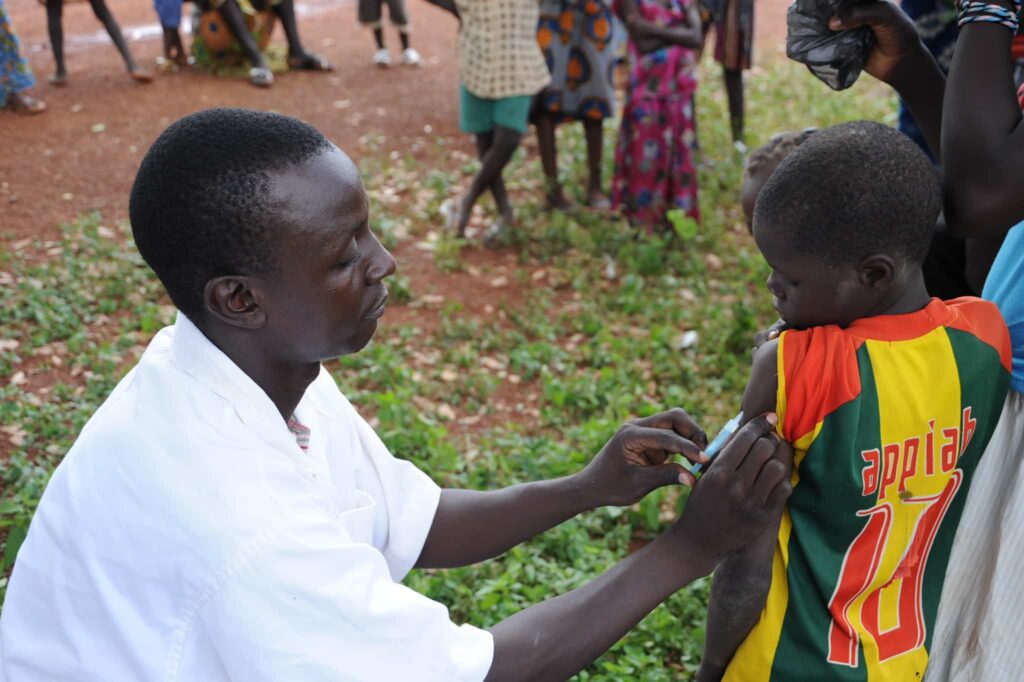NEW YORK, New York — As the most populated country in Africa, Nigeria is home to more than 230 million people. High population growth paired with suboptimal vaccination coverage resulted in 3.3 million less-vaccinated children and 2.3 million children receiving zero vaccinations in 2021. The persistent emergence and recurrence of diseases and epidemics in Nigeria, such as malaria, tuberculosis and COVID-19, continue to threaten Nigeria’s most vulnerable populations. To prepare and strengthen the country’s response to epidemics, organizations such as the Global Health Advocacy Incubator (GHAI) work closely with the Nigerian government to develop policies that address and combat the presence of infectious diseases in the country.
The GHAI
The GHAI is a global health organization that partners with local governments, communities and other stakeholders to advocate for progress in public health policy. Since 2014, the GHAI has developed campaigns in more than 60 countries addressing a range of public health issues including but not limited to access to nutritious food, immunization, maternal and reproductive health, primary health care, overdose prevention and epidemic prevention and response. Recently, The Borgen Project had the opportunity to speak with Dr. Emmanuel Alhassan, the Nigeria Coordinator for the GHAI, to learn more about the Prevent Epidemics program.
The Prevent Epidemics Program
The GHAI’s Prevent Epidemics program is a multinational health advocacy campaign that is available in Ghana, Senegal, Kenya, Uganda, Zambia and Nigeria. Through public and political initiatives, the program builds support for government investments in epidemic preparedness and response. As the Nigeria coordinator for the country’s Prevent Epidemics program, Alhassan conducts landscape analysis and works alongside policymakers, nongovernmental organizations (NGOs) and media outlets to promote local and national public health campaigns.
Collaboration with stakeholders, such as the Nigeria Center for Disease Control and Prevention, the Ministry of Culture, the National Security Advisor and local news stations, allows the GHAI to “increase public awareness and catalyze the demand for more government funding,” states Alhassan.
Campaign Strategies
According to the GHAI, continuous public engagement and advocacy are just two of the many campaign strategies used to sustain long-term investments in public health security. Alhassan emphasizes the importance of media advocacy in garnering support for epidemic prevention and preparedness bills as it helps raise the consciousness of both citizens and government officials. Highlighting the impact of an epidemic showcases the gravity of the situation.
“If a country can stop an epidemic ahead of time, it will only spend one-sixteenth of the funds it will need for when it worsens,” Alhassan told The Borgen Project.
Ensuring sustainable funding is a key campaign strategy for the GHAI’s Prevent Epidemics team. Alhassan describes sustainable funding as a multitude of approaches used to increase domestic funding. By tracking the allocation and disbursement of funds, the GHAI holds the government accountable and ensures yearly increases to public health budgets.
Fiscal Success
Since its conception in 2018, the GHAI’s Prevent Epidemics program has had tremendous success garnering funds. During the first three years of the program, funding for the Nigeria Center for Disease Control doubled to 3.9 billion Naira ($9.4 million) in the 2022 fiscal year. Furthermore, the fiscal achievements of the program are most evident in Kano State, Nigeria’s most populated state.
As part of a state-level adaptation of Nigeria’s National Action Plan for Health Security and Financing, the GHAI worked alongside Kano State’s local government to address the state’s recurring and emerging disease outbreaks. By building coalitions, partnering with various stakeholders and increasing media advocacy efforts, the Alhassan and the GHAI’s Prevent Epidemics team were able to establish an unprecedented epidemic preparedness budget line. Since 2020, the total funding for Kano State’s Epidemic Preparedness and Response budget line has nearly tripled, increasing to 400 million naira (approximately $883,000) in the 2023 fiscal year.
The Impact
As the first epidemic preparedness budget line ever implemented in Nigeria, Kano State’s fiscal success can act as a model for other states and countries working to prevent the emergence and spread of epidemics in Nigeria. For example, following the framework set by Kano State, a new budget line called the Public Health Epidemics and Emergencies budget line was created in Lagos State.
Other countries, such as Ghana and Senegal, have recognized the need for funding and policy for epidemic preparedness. Thanks to the GHAI’s efforts, Senegal increased its funding for its government committees involved in finding, responding to and preventing disease outbreaks, which previously only received $100,000 annually.
Recently, the GHAI launched a civil society organization (CSO), Budget Advocacy Academy (The Academy), which shares epidemic preparedness advocacy knowledge with CSOs across Africa. Drawing upon lessons learned from Nigeria and Senegal’s Prevent Epidemics program, this nine-month program teaches advocacy techniques to select government officials and CSO advocates in hopes of promoting cross-country peer learning and enhancing the abilities of CSOs.
Through public engagement, education and budget accountability, the GHAI’s Prevent Epidemics program successfully continues to advocate for the health of Nigerians and those around the world.
– Naima Rasheed
Naima Rasheed is based in New York, NY, USA and focuses on Good News and Global Health for The Borgen Project.
Photo: Flickr
Source link : https://www.borgenmagazine.com/epidemics-in-nigeria/
Author :
Publish date : 2024-07-07 10:00:01
Copyright for syndicated content belongs to the linked Source.
